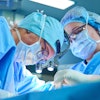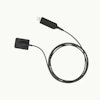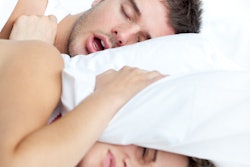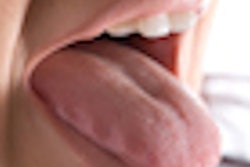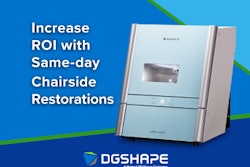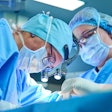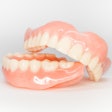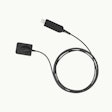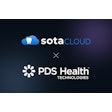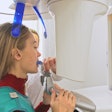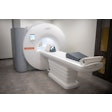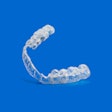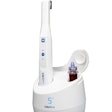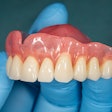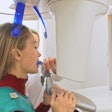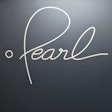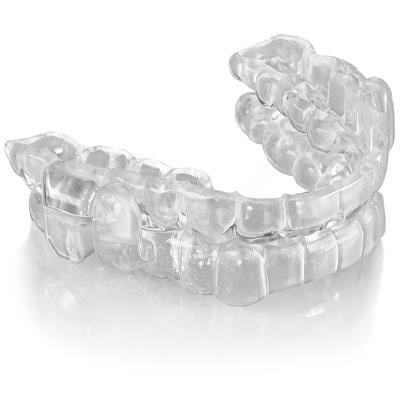
A 43-year-old woman presented with a chief complaint of snoring and difficulty maintaining sleep, along with jaw pain and daily morning headaches. She was previously diagnosed with temporomandibular joint (TMJ) dysfunction and obstructive sleep apnea (OSA).
 All images courtesy of Dr. Mark Murphy.
All images courtesy of Dr. Mark Murphy.Although the patient treated the OSA with a continuous positive airway pressure (CPAP) mask, she said she only wore it four days a week for less than half the night because it was cumbersome and uncomfortable to sleep while wearing the mask.
The patient had verified sleepiness and sleep apnea through a series of tests:
- Epworth Sleepiness Scale score of 15 out of 24 (score of nine or higher is significant)
- STOP-Bang score of two (score of three or higher indicates risk)
- Apnea-Hypopnea Index score of 5.1 (score is considered mild obstructive sleep apnea, but women sometimes present with disproportionate symptoms to their OSA disease state)
Technique and outcome
The clinical objectives of precision OSA treatment are to eliminate or reduce snoring episodes, reduce bruxism, and improve cardiorespiratory indicators, thereby increasing the patient's oxygen saturation levels during sleep.
 The patient's digital bite registration.
The patient's digital bite registration.To start, an oral examination was performed, which confirmed the patient was a viable candidate for oral appliance therapy. Next, the patient's upper and lower arches were scanned with an intraoral scanner (Medit i700). A protrusive bite registration was also captured at approximately half of her range of motion at 3-mm vertical.
Oral appliance software (ProSomnus, ProSomnus Sleep Technologies) was utilized to generate the design of the oral appliance for OSA therapy. The procedure took about five minutes to complete.
 Design proposal of the oral sleep appliance.
Design proposal of the oral sleep appliance.After scanning, the case was submitted through the software portal. Six to eight working days later, the appliance (ProSomnus Evo) was shipped back to us and was ready to be worn by the patient.
 The oral sleep device.
The oral sleep device.The patient reported that using the appliance while sleeping eliminated her snoring and she felt better than ever. She sent me a note saying she had not experienced a headache or migraine since receiving her new appliance.
"Now I am feeling sharper and my memory is getting better. I feel so good I could cry," the patient wrote.
Dr. Mark Murphy is an American Board of Dental Sleep Medicine diplomate and has practiced in the Rochester, MI, area for more than 35 years. He is the lead faculty for clinical education at ProSomnus Sleep Technologies and serves on the guest faculty at the University of Detroit Mercy School of Dentistry. He lectures internationally on leadership, dental sleep medicine, temporomandibular disorders, treatment planning, and occlusion.
The comments and observations expressed herein do not necessarily reflect the opinions of DrBicuspid.com, nor should they be construed as an endorsement or admonishment of any particular idea, vendor, or organization.
